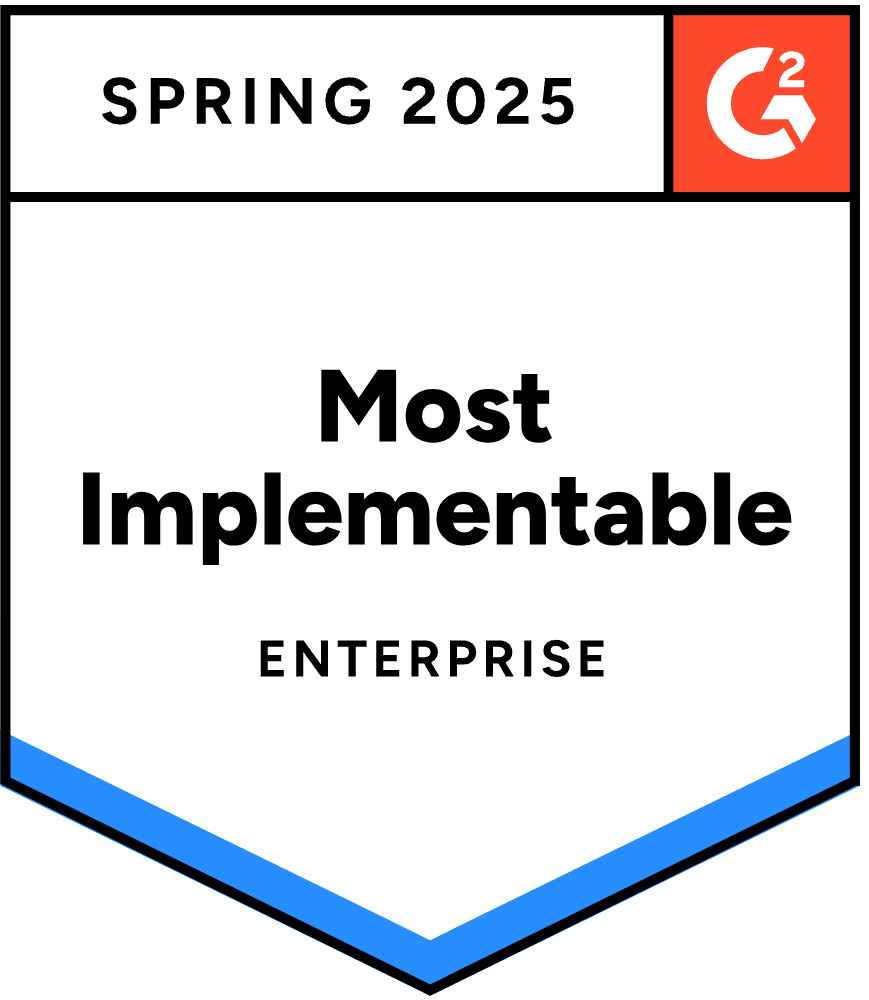8 High-Impact Sales Coaching Strategies
Anna Spooner | WorkRamp Contributor
View bioLearning Tips Straight to Your Inbox
Effective sales coaching is critical to your team’s success.
When done well, sales coaching can improve win rates by up to 30 percent. Unfortunately, many organizations don’t have successful sales coaching strategies.
In one study, 93 percent of sales managers said they were doing at least three hours of coaching per rep per month, but only 44 percent of sales reps said the same. There was clearly a disconnect, which means that coaching was either not happening or was ineffective.
The good news is that there are coaching methods that can help your reps perform better and more consistently. Help your reps excel in their roles and hit your revenue targets with these sales coaching strategies to bring out the best from your team.
In this post:
Create a formal coaching process
According to Gitnux data, only 21.7 percent of companies provide formal coaching to all sales reps.
If you don’t have a coaching program at your org, you’re doing your reps a disservice. Organizations with a formal coaching process aligned with enablement resources saw a 10-point improvement in win rates, from an average of 45 percent to 55.2 percent.
The same report showed that investing more in sales training also makes a difference. Companies that invested over $2,500 per rep in training saw a 5-point increase in win rates compared to the average.
Creating a formal coaching process is a strategic initiative that can significantly impact an organization’s bottom line. The first step is establishing clear objectives and key performance indicators (KPIs) aligning with sales goals. Once these objectives are defined, the coaching process can begin.
The second step involves identifying individual strengths and areas for improvement. This involves skills analysis and performance evaluations, sales data analysis, and one-on-one meetings with reps.
Coaches should then tailor their strategies to address these unique needs. Regular coaching sessions should be scheduled to provide ongoing support and feedback. During these sessions, coaches must offer constructive feedback, set action plans, and provide resources or training where necessary.
“For sales coaching to be effective, there needs to be continuity and follow-up,” says Mallorie Maranda, WorkRamp’s VP of Sales. “I always think about the golf swing metaphor–if you’re trying to improve someone’s golf swing, it’s important to focus on one aspect of the swing at a time then (for example, the placement of the feet), and once they’ve improved on that aspect, you can move on to the next piece of the swing (perhaps the follow through).
“The same goes with sales reps–if you give reps feedback on different aspects of their calls or sales cycle, they might get overwhelmed and end up not implementing any of the feedback. Instead, I encourage my sales leaders to focus on one small change with the reps weekly and then move on to something else once we’ve seen improvement in the first area.”
The coaching process should also foster an open and collaborative environment where sales reps feel comfortable discussing challenges, seeking guidance, and sharing their successes.
By consistently monitoring progress, adapting strategies, and maintaining a supportive environment, the formal coaching process can help sales reps continually improve their performance and drive increased sales results.
Read more: How to Create a Coaching Culture
Make sure remote team members get support through sales coaching
Unfortunately, remote employees can miss out on sales coaching opportunities. A surprising 45 percent of sales reps say they get less coaching than usual—or none—since going remote.
Just because reps aren’t in the office doesn’t mean they can’t still benefit from sales coaching. However, it may take additional accommodations to coach reps remotely.
“I’ve spent quite a bit of time creating certifications for go-to-market teams, aligning our messaging, making sure we’re all assessing where there are holes, and then I pivot, make sure to check for understanding and retrain as needed,” Marit Parten, Enablement leader says. “We, too, are a hybrid, mostly virtual organization, so constant check-ins with the sales team are needed. I’m always trying to find new and creative ways to receive feedback so the dance moves on, but motivation is at the forefront, keeping everybody excited and willing to make changes as needed.”
Here are some tips to make remote coaching more effective:
- Create an agenda for 1:1s and cover the wins and challenges of a rep’s week
- Ask sales reps if they have a deal they need help with, what obstacles they’re facing, and what support would make the biggest difference
- Listen to recorded sales calls
- Have team members train each other in specific skills, like remote product demos
- Coach all of your team members, not just those who are struggling
You can also use a learning management system like the Learning Cloud from WorkRamp to create on-demand training for remote and in-office employees. This will give your team an easy way to complete coaching and training on demand, no matter where they work.
Tailor coaching to the individual
A formal training program often means creating a schedule for managers that includes daily, weekly, and monthly coaching sessions. These sessions often come with checklists of items to cover.
Going through the same points for every sales rep helps ensure consistency in coaching, but it doesn’t address the fact that different reps may be struggling with different aspects of the process. It also doesn’t consider the sales rep’s specific career goals or the skills they want to develop.
“At WorkRamp, we make it a point as a leadership team to listen to at least one call recording weekly to provide coaching for that rep,” Mallorie says. “It’s a weekly tradition that holds us accountable for providing specific call coaching vs. our spot coaching on specific opportunities. The first week of the month, each leader chooses a discovery call; the second week, we choose a demo call; the third week, we choose a pricing/negotiation call; and the fourth week is wildcard week.”
Read more: 6 Effective Ways to Support Employee Career Growth
Remember, 46 percent of reps say they didn’t intend to go into sales. That means they may not have the natural aptitude to succeed, and they may not have traditional sales career goals. Talk to your reps and tailor coaching for their individual goals and skill sets.
Help sales reps self-diagnose
No one likes to be told they’re wrong or aren’t doing a good job. But sometimes, managers need to relay critical feedback or help a rep assess poor performance. What’s the best way to communicate this? Try asking questions that allow sales reps to understand the situation.
For example, you might look at a recently lost sale. As a manager, you can listen to the call and know exactly where things went wrong. But rather than simply jumping in, ask questions so the sales rep sees where they may have room for improvement.
Some questions you can ask:
- What went well with this call?
- Where do you think things turned sour?
- What was in your mind when you heard the prospect say…?
- What could have been done differently?
- What are the benefits if you make this change?
- What could happen if you don’t make this change?
This sequence of questions helps a sales rep see what they did right and what went wrong. It also allows them to identify the solution on their own. Helping them diagnose the issue and develop a solution is much more effective than simply telling them they were wrong.
Read more: Don’t Make These 9 Feedback Mistakes
Practice strategic roleplaying
Roleplaying is a vital training ground for new sales reps where theoretical knowledge is implemented. It allows them to hone essential skills such as effective communication, objection handling, and product knowledge. Through repeated simulations, newer reps gain the confidence to engage with prospects and adapt their approach based on various customer personalities and objections.
Even seasoned sales professionals can benefit from regular roleplaying sessions. In an industry characterized by constant changes and evolving customer expectations, veterans must stay sharp and adaptive. Roleplaying provides a controlled environment for experienced reps to refine their strategies, test new approaches, and fine-tune their problem-solving abilities.
“An effective and timeless tool that we employ in sales is role-playing,” John Pennypacker, VP of Sales & Marketing at Deep Cognition, says. “We do the usual simulation of scenarios to coach team members on how they can approach each type of client and situation. This is a good hands-on experience for the new ones, while for the veterans, it is a good opportunity for them to fine-tune and update their skills, especially with the emergence of new markets.
“And since some sales professionals have flexible schedules, you can have a supplementary program on sales enablement platforms or other relevant eLearning training. This ensures continuing development for all, which they can access at their own pace and time.”
Read more: 3 Sales Enablement Tools for Your Sales Team
Help reps focus on making real connections
As technology and AI are reshaping how we engage with prospects, one principle stands out as a constant in effective sales coaching–active listening. Understanding your prospects is a game-changer. In a world buzzing with innovations, it’s easy to get swept away by the allure of cutting-edge tools, but the essence of successful sales lies in authentic connections.
“I’m not very cool at following the latest, greatest trends, but I would say always choosing empathy and selling through storytelling,” Marit says. “As a sales professional, being in the shoes of your prospect or customer is invaluable. AI will change things, but let’s just keep empathetic and real and see what [our customers’] needs are. It’s invaluable to follow that customer journey and identify where we can truly help.”
The importance of empathy and storytelling is even more important with emerging technology. As AI continues transforming the sales landscape, it’s crucial to balance leveraging technological advancements and maintaining genuine human connections. Active listening isn’t just about hearing words; it’s about deciphering the underlying emotions, concerns, and aspirations that drive your prospects. By doing so, sales professionals can navigate the evolving customer journey, identifying pivotal moments where they can genuinely address customer needs.
Read more: Harnessing AI for Smarter Sales Enablement
Follow up on coaching concepts regularly
We don’t learn concepts immediately—instead, we need practice and repetition. That’s why following up and practicing new ideas and approaches is essential. Most people will forget 90 percent of what they learned in a training session within a week without practice or reinforcement
You’ll have far better results when you repeat lessons regularly, make learning materials available on demand, and ensure your learning process is engaging and easy to follow.
When Grin started using WorkRamp, they found they could scale their training program, gamify learning, and track results. Employees only needed 15 minutes to get set up and start taking their first courses with WorkRamp, which drove sales adoption and the use of the tool across the company.
Promote continuous learning and development
A one-time coaching session may provide immediate insights and improvements, but the ongoing commitment to learning propels sales reps to new heights.
Sales environments are constantly evolving, with market trends, customer preferences, and industry landscapes undergoing shifts. Regular training sessions, workshops, and access to learning resources keep sales reps current on the latest industry developments, equipping them with the knowledge and skills necessary to navigate changing dynamics.
“There are numerous sales coaching strategies that work amazingly well depending on the industry, niche, team, target market, and other factors, which is why no coaching strategy works universally well,” says Michael Maximoff, Co-Founder & Managing Partner, Belkins. “However, the one sales coaching approach and strategy that always worked well for the sales teams I built, grew, or coached was implementing continuous, on-the-spot sales training and development.
“I believe every sales leader, manager, or coach should consider training and coaching their team on the spot at least once a week. The sales environment is dynamic, and in my experience, no coaching strategy works, as well as being there in the heat of the moment and providing guidance, training, and help to your sales reps.”
Read more: Continuous Learning: What it is & Why it’s Important for Your Business
Implement better sales coaching strategies today
Companies where managers spend more time on effective coaching see a forecast deals win rate that’s 8.2 percent higher than average, and overall revenue attainment is 5.2 percent higher than average.
Effective coaching in your organization is partly about the coaching methods but, even more importantly, about how you reinforce, practice, and follow up on that coaching.
Empower your sales team with the Learning Cloud from WorkRamp. With the Learning Cloud, you can create effective, engaging training programs to help sales reps close more deals and maximize performance.
Discover how the Learning Cloud can help you drive sales results. Contact us to schedule your free, personalized demo.
Complete the form for a custom demo.
Recent Posts
- Why Secure LMS Platforms Are a Must for Regulated Industries July 10, 2025
- Top LMS Integrations That Power Smarter, Faster Learning July 2, 2025
- Introducing WorkRamp Analytics Studio: Unlocking Your Data Insights with AI June 30, 2025
- 11 AI LMS for AI-Powered Learning June 27, 2025
- The Best LMS Platforms for Customer Retention (2025 Guide) June 27, 2025
Anna Spooner
WorkRamp ContributorAnna Spooner is a digital strategist and marketer with over 11 years of experience. She writes content for various industries, including SaaS, medical and personal insurance, healthcare, education, marketing, and business. She enjoys the process of putting words around a company’s vision and is an expert at making complex ideas approachable and encouraging an audience to take action.
You might also like
Is your enablement team focusing on the right metrics?
Discover key sales enablement metrics to help optimize your sales enablement strategies and drive revenue growth.
Read More
Empower reps with the knowledge they need at every stage of the sales process
Discover the top sales enablement best practices to boost your sales success in 2024.
Read More
Why you need sales enablement content as part of your sales strategy
The right sales enablement content empowers your team to answer questions, address objections, concerns, and pain points, and convert prospects into customers.
Read More
Ready to Explore Online Learning Platforms?
Get in touch to learn how WorkRamp can help you achieve your training goals.
Request a Demo





